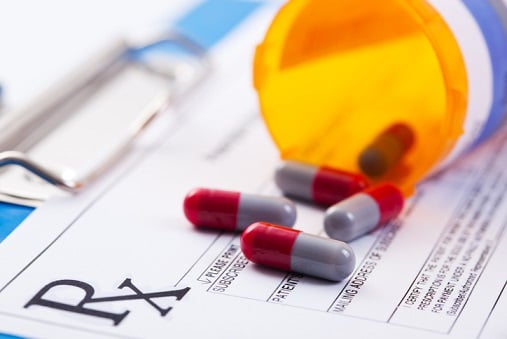An industry association is urging the province to invest in expanding pharmacists’ role

Nova Scotia is expecting to save millions of dollars from a recently announced agreement between generic drug manufacturers, provincial governments, and Ottawa. But the province’s pharmacists association is not so optimistic.
According to NS Health and Wellness Minister Randy Delorey, the reduction of up to 40% on nearly 70 of the most commonly prescribed drugs in the country — including treatments for high blood pressure, high cholesterol, and depression — will save the province some $12 million annually, reported the Chronicle Herald.
Generic drugs make up between 60% and 70% of the drugs covered in Nova Scotia’s public drug programs; it spends around $270 million each year on the programs. But Delorey said the reduction in generic drug prices will not necessarily translate to a financial windfall or an increase in the number of drugs covered in public programs.
“[W]hile we’re seeing a reduction in the cost of those drugs, the demand for drugs is also going up at the same time, so you don’t necessarily see it directly on a bottom line,” he said.
Nationally, the deal is forecast to create $3 billion in savings for public drug plans over five years. The lower generic prices are also expected to spread to private drug insurance plans. However, according to Allison Bodnar, CEO of the Pharmacy Association of Nova Scotia, it could cost pharmacies up to $100,000 annually.
“There certainly [have been] significant changes in pharmacy operations: the number of employees, number of hours, types of services, a lot of changes in their community support,” she told the Herald, referring to the struggles that pharmacies already face.
The association is urging the government to take the savings from the generic drug deal and invest it in expanding pharmacists’ role in the province’s overloaded healthcare system.
For instance, the province currently doesn’t pay NS pharmacists to renew prescriptions, even though they’re legally allowed to do so, which leaves patients to pick up the service fee for the pharmacist’s assessment. They could also step for more important roles, such as managing treatment of chronic diseases like hypertension, diabetes, and chronic obstructive pulmonary disorder.
“We have one of the largest scopes of practice in the country here in Nova Scotia but very, very little of it is funded publicly,” Bodnar said. “What we’re saying to government is, take this opportunity. Take these savings [and] make the investment and it will pay you dividends.”
While Delorey acknowledged pharmacists’ concerns, he did not make any specific commitment to expand their role.
“We’ve seen lots of examples where pharmacists have stepped up to deliver [services],” he said. “I think we have a good working relationship and there will be opportunity to continue that.”
According to NS Health and Wellness Minister Randy Delorey, the reduction of up to 40% on nearly 70 of the most commonly prescribed drugs in the country — including treatments for high blood pressure, high cholesterol, and depression — will save the province some $12 million annually, reported the Chronicle Herald.
Generic drugs make up between 60% and 70% of the drugs covered in Nova Scotia’s public drug programs; it spends around $270 million each year on the programs. But Delorey said the reduction in generic drug prices will not necessarily translate to a financial windfall or an increase in the number of drugs covered in public programs.
“[W]hile we’re seeing a reduction in the cost of those drugs, the demand for drugs is also going up at the same time, so you don’t necessarily see it directly on a bottom line,” he said.
Nationally, the deal is forecast to create $3 billion in savings for public drug plans over five years. The lower generic prices are also expected to spread to private drug insurance plans. However, according to Allison Bodnar, CEO of the Pharmacy Association of Nova Scotia, it could cost pharmacies up to $100,000 annually.
“There certainly [have been] significant changes in pharmacy operations: the number of employees, number of hours, types of services, a lot of changes in their community support,” she told the Herald, referring to the struggles that pharmacies already face.
The association is urging the government to take the savings from the generic drug deal and invest it in expanding pharmacists’ role in the province’s overloaded healthcare system.
For instance, the province currently doesn’t pay NS pharmacists to renew prescriptions, even though they’re legally allowed to do so, which leaves patients to pick up the service fee for the pharmacist’s assessment. They could also step for more important roles, such as managing treatment of chronic diseases like hypertension, diabetes, and chronic obstructive pulmonary disorder.
“We have one of the largest scopes of practice in the country here in Nova Scotia but very, very little of it is funded publicly,” Bodnar said. “What we’re saying to government is, take this opportunity. Take these savings [and] make the investment and it will pay you dividends.”
While Delorey acknowledged pharmacists’ concerns, he did not make any specific commitment to expand their role.
“We’ve seen lots of examples where pharmacists have stepped up to deliver [services],” he said. “I think we have a good working relationship and there will be opportunity to continue that.”



